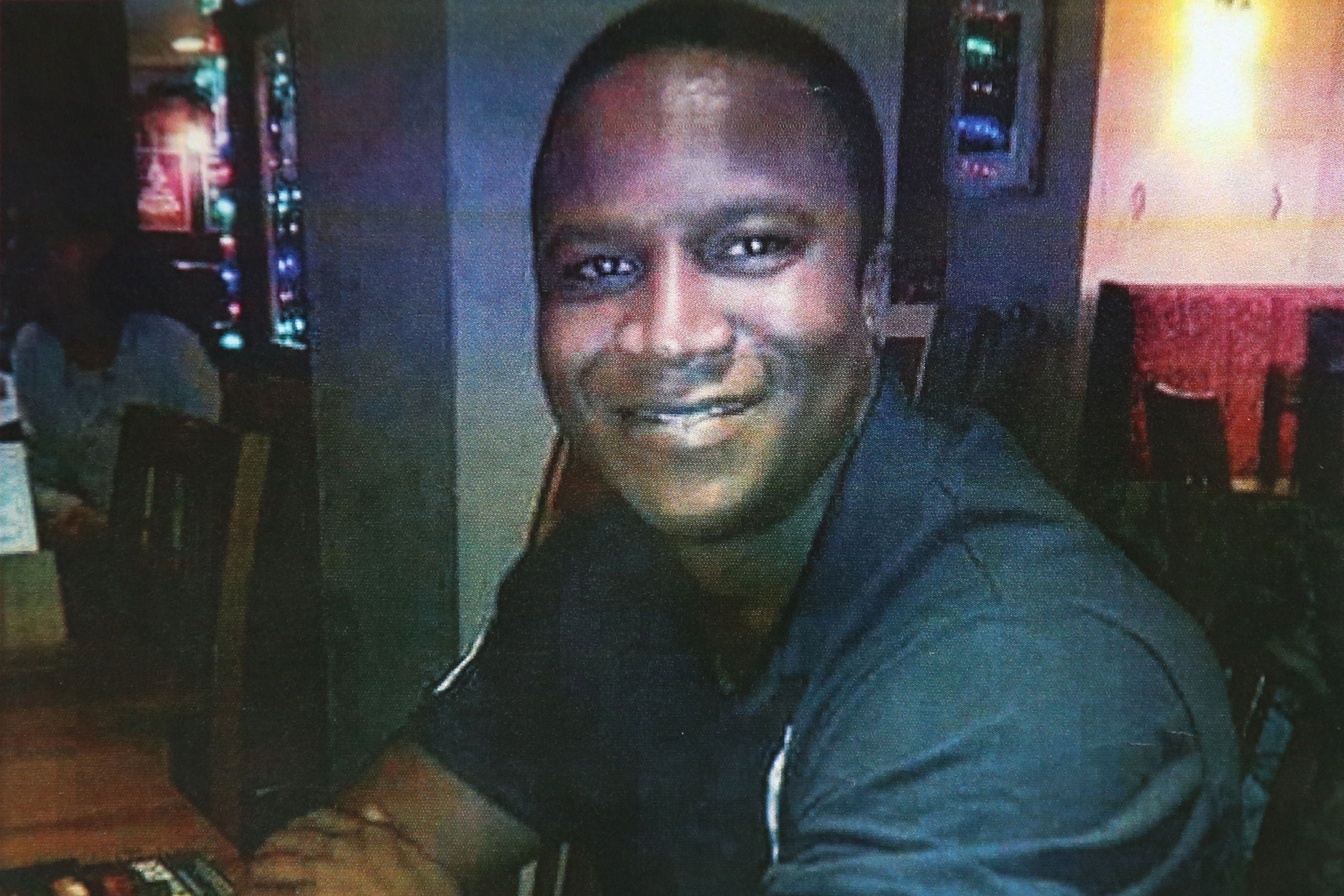Sheku Bayoh Inquiry: Officer cannot recall if he gained consent to enter house
PC Rhuaridh Fraser said he did not know if he was given consent to enter the home which was being treated as a crime scene.

Your support helps us to tell the story
From reproductive rights to climate change to Big Tech, The Independent is on the ground when the story is developing. Whether it's investigating the financials of Elon Musk's pro-Trump PAC or producing our latest documentary, 'The A Word', which shines a light on the American women fighting for reproductive rights, we know how important it is to parse out the facts from the messaging.
At such a critical moment in US history, we need reporters on the ground. Your donation allows us to keep sending journalists to speak to both sides of the story.
The Independent is trusted by Americans across the entire political spectrum. And unlike many other quality news outlets, we choose not to lock Americans out of our reporting and analysis with paywalls. We believe quality journalism should be available to everyone, paid for by those who can afford it.
Your support makes all the difference.A police officer has told an inquiry he cannot remember whether consent was given to him when entering a house treated as a crime scene following the death of Sheku Bayoh.
Mr Bayoh, 31, a father-of-two, died after he was restrained on the ground by six police officers in Kirkcaldy, Fife, on May 3 2015.
The Sheku Bayoh Inquiry is investigating the circumstances of his death and whether race was a factor.
Police constable Rhuaridh Fraser, 49, gave evidence at the inquiry where he also admitted he “could have attempted further” to communicate with the residents of the house, believing none of them spoke English.
I believe I must have been afforded entry into the house
The officer, who has worked for Police Scotland since 2009, was questioned on a 2015 incident where officers investigated a property being treated as a crime scene.
Mr Fraser had been accompanied by another police officer and later two CID detective inspectors to the property.
Saadia Rashid, previously, told the inquiry of her “traumatic nightmare experience” when the officers asked her and her family to vacate their home on May 3 2015.
She said the officers told her they did not need a warrant and that she was left feeling she had no choice but to leave.
She also said she was not aware of anything that would connect Mr Bayoh to the house.
She said: “What did Shek’s death have to do with our house, why were we being thrown out of our house, what were they looking for in our house, what were they searching for that could possibly have to do with Shek’s death?”
Angela Grahame KC, senior counsel to the inquiry, asked Mr Fraser if police obtained consent to enter the property.
He replied: “I believe I must have been afforded entry into the house. I didn’t know any of the details of the people.
So my assumption thereafter was that nobody had a good grasp on English or felt confident to speak
“But in order to speak to the people within, I can only assume, I don’t recall, but I can only assume I knocked on the door and the door was opened.”
Ms Grahame then asked if the resident opening the door in itself would be considered consent for entry.
The officer replied: “No. A person can, in numerous ways (give consent), they can verbally say it, or they can just motion or walk away; leave the door open.”
Ms Grahame asked the officer if he remembered if anyone on the property made any gesture or signal as to whether he could enter the house.
He replied: “I don’t remember.”
Mr Fraser also said he did not think any of the residents at the property spoke English.
Mr Fraser said he felt unwelcome at the property, partly because of the language barrier, and also because he felt he was causing “anxiety” to the residents.
However, he admitted he may have left the property “too quickly”.
He said: “There was no English forthcoming from the room, so it was my assumption after the first person I tried to directly communicate with and there was no English with that person.
“So my assumption thereafter was that nobody had a good grasp on English or felt confident to speak.”
He added: “I maybe left the property too quickly and didn’t try to engage with others, but I may have felt that I had overstepped the mark that I was far from welcome in the house and I didn’t want to make matters worse.
“And that maybe others, i.e. the CID, would have a better knowledge of what would be occurring.
“So, in order to placate, I certainly felt the right option was to leave.”
He was later questioned by the Bayoh family lawyer, Claire Mitchell KC, on “unconscious bias” and on his understanding of racism after Mrs Rashid said she felt the family may have been “treated differently” due to their race and religion.
The officer said this was not the case, and added that while his race training took place in the early days of his police training, he does not have any overt or unconscious biases.
The inquiry, before Lord Bracadale in Edinburgh, continues.